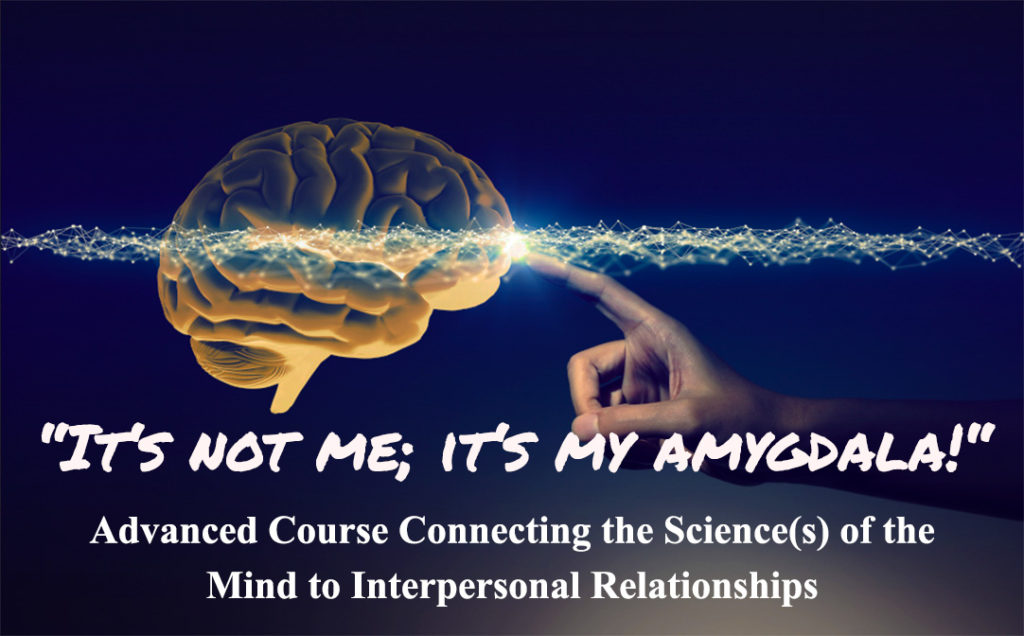Podcast: Play in new window | Download (Duration: 1:00:48 — 139.3MB)
Subscribe: Apple Podcasts | Spotify | Amazon Music
Tori Olds with Deep Eddy Psychotherapy
Learn to apply the advances in neuroscience to our lives in a real way – we all want to be able to do that, right? This episode delivers on that for sure – memory reconsolidation is changing how therapists practice and explains why those lightbulb moments can actually transform us if done correctly. 🙂
In this episode,
Powerhouse clinicians Tori Olds and Bruce Ecker join co-host Sue Marriott in a discussion on how memory reconsolidation brings awareness to old maps and traumatic emotional learning and gives us a clean slate on which to build new learning pathways.
Saturday February 15, 2020: Introduction to Coherence Therapy, Austin, TX
Who is Bruce Ecker?
Bruce Ecker, MA, LMFT is co-originator of Coherence Therapy and coauthor
of Unlocking the Emotional Brain: Eliminating Symptoms at Their Roots Using Memory Reconsolidation; the Coherence Therapy Practice Manual & Training Guide; and Depth Oriented Brief Therapy: How To Be Brief When You Were Trained To Be Deep and Vice Versa. Clarifying how transformational change takes place is the central theme of Bruce Ecker’s clinical career, and he has contributed many innovations in concepts and methods of experiential psychotherapy. Since 2006 he has driven the clinical field’s recognition of memory reconsolidation as the core process of transformational change and has developed the application of this brain research breakthrough to advancements in therapeutic effectiveness and psychotherapy integration. Bruce is a frequent presenter at conferences and workshops internationally, has taught extensively in clinical graduate programs, and is in private practice in New York City
Who is Dr Tori Olds?
Tori Olds, PhD is a psychologist in private practice in Austin, Texas. She is a co-owner of Deep Eddy Psychotherapy, a counseling center housing seventeen clinicians. She specializes in working with trauma, particularly attachment trauma, and utilizing mindfulness and self-compassion as a resource for personal growth. Alongside her clinical work, she has a passion for training therapists in experiential ways of working. She leads a number of study groups and is developing 10 online courses focused on helping clinicians develop experiential skills, as well as understand human development from an evolutionary, neurobiological, and attachment lens.
Show Notes
Meeting Tori Olds and Bruce Ecker
- Tori Olds: Clinician and leader of a training group on how to integrate experiential psychotherapies (AEDP, PACT, Somatic Experiencing)
- Bruce Ecker: Clinician and author of “Unlocking the Emotional Brain”
Emotional Learning
- Emotional learning happens much as a Pavlovian response
- We often learn without awareness and become prisoners of emotional learning
- Emotional truths are a powerful mental model how of how the world works that we don’t often realize are there
- Low self-esteem works as a protective, adaptive tactic
- By bringing awareness to these learnings, we can de-pathologize them (therapists can help facilitate this) and begin the disconfirmation process
Memory reconsolidation
- Memory reconsolidation: the brain’s built-in, natural way of using new learning to directly update and re-encode existing old learning
- This process targets emotional learning
- Memory reconsolidation can serve as a “unifying framework for the psychotherapy field, which has been so fragmented”
Therapeutic Contexts of Memory Reconsolidation
- Coherence therapy, as well as many other different therapeutic models, can produce transformational change through memory reconsolidation
- Three stages: 1) Discovery 2) Integration 3) Juxtaposition
Resources
Primer on Memory Reconsolidation – PDF – READ THIS if you want more!
Unlocking the Emotional Brain –– Bruce Ecker
Coherence Therapy Practice Manual – Bruce Ecker
Depth Oriented Brief Therapy – Bruce Ecker
Dr. Tori Olds’s Youtube Channel
Clinical Translation of Memory Reconsolidation Article
Saturday February 15, 2020: Introduction to Coherence Therapy, Austin, TX
Other Episodes That You May Enjoy:
TU49: Five Strategies to Manage Intense Emotions & Why Emotional Regulation Matters &
TU08: Understanding Emotional Triggers: Why Your Buttons Get Pushed and What To Do About It
Who doesn’t love special offers?
Our advanced course on attachment and neuroscience has been recently released and is now available for a discounted price! While this course is aimed toward clinicians (CE’s available!), all who are interested in deepening security in yourselves and your relationships are welcome to participate. 4 hours of curated content!
CLICK HERE FOR MORE INFORMATION
We’re on Patreon – dive in and get more involved!
Join our exclusive community of Therapist Uncensored Neuronerds for as little as $5 a month!
Increase your access, join a kick-ass like-minded community, get discounts on our courses and get exclusive content.
Help us create a ripple of security by supporting us in freely sharing the science of relationships around the globe!
 We have pledged 50% of all corporate profits & merch sales (very fun swag!) to organizations that support mental health access to those traditionally left out of mainstream healthcare. We can only do that with the help of our Neuronerd private community.
We have pledged 50% of all corporate profits & merch sales (very fun swag!) to organizations that support mental health access to those traditionally left out of mainstream healthcare. We can only do that with the help of our Neuronerd private community.
By joining as a Neuronerd premium subscriber, you get a dedicated ad-free feed, deeper dives into select content and first shot at very unique study opportunities. If we've provided value then please check us out, poke around, make sure you feel comfortable and then join us today!














